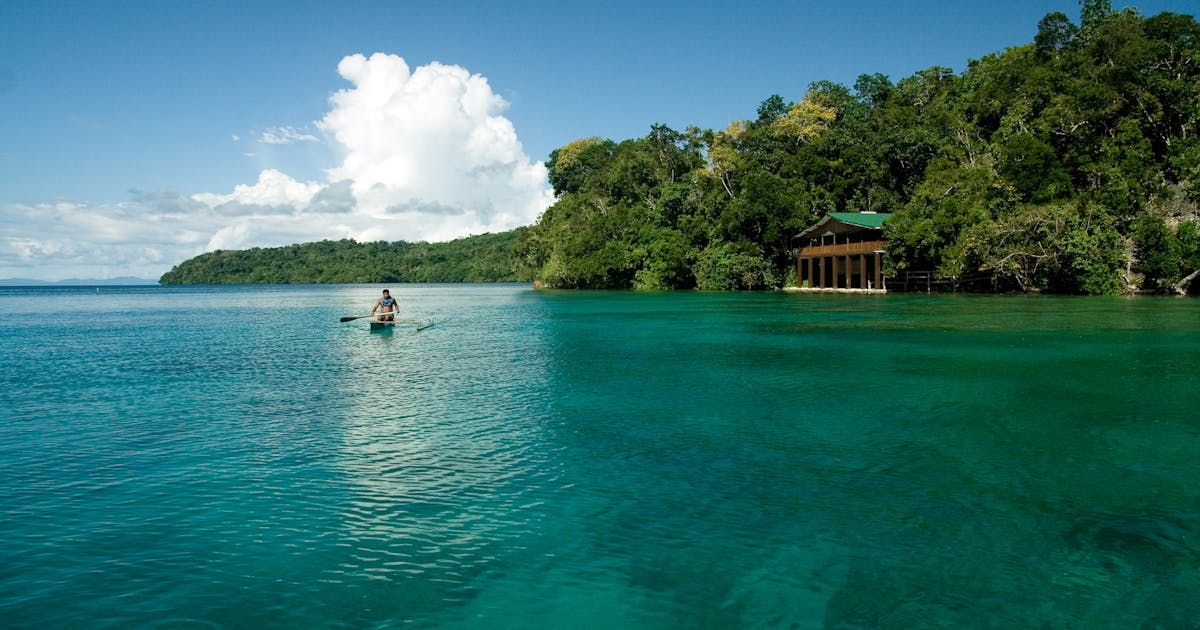In one of the richest natural environments in the world, a rare step is being taken to work with local people to protect it.
Papua New Guinea (PNG) is a land of incredible biodiversity, harboring more species per square kilometer than nearly anywhere else on Earth. PNG’s people, meanwhile, are heavily reliant on nature: Many live in remote villages on isolated islands or deep in mountain rainforests, disconnected from roads and electricity, surviving on food from their gardens and the skill of their hunters and fishers. About 80% of the country’s population relies on subsistence agriculture.
Despite its natural splendor, Papua New Guinea is often overlooked by conservation and aid organizations. Poor Internet connectivity and high levels of corruption have kept the country largely isolated from the world; when news does emerge in Western media about PNG, it’s rarely good.
These perceptions can overshadow why Papua New Guinea is such an important place to care for.
For more than two decades, Conservation International (CI) has been working to help protect nature in Papua New Guinea — and in turn, the food, water and livelihoods that nature provides to the country’s people.
Further reading
Over the years, CI has helped to identify and raise the profile of the country’s biodiversity, from tree kangaroos to giant clams. Projects such as “Spreading the Reach” in Milne Bay Province sustainably manage and conserve the vast and vibrant coral reefs that are under threat from destructive fishing methods, overfishing and climate change. Today, groups of young conservation mentors from numerous local communities are working together, with the support of CI staff, to spread a new paradigm of sustainable management and coral reef conservation to neighboring islands, creating a new network of community-based coral reef conservation programs in Milne Bay.
Throughout, CI has sought to help community members lead the movement to protect their customarily held lands and waters, which they need for survival.
That effort is taking a big step forward with the creation of a new locally based organization, Eco Custodian Advocates (ECA). The new organization will be locally run and owned, placing the control and power of conservation projects locally. While current CI projects will continue unhindered and CI staff will transition to ECA, the new organization will chart its own course forward as an entity connected to and representative of the very people it supports.
Though this transition is a new and unprecedented action for CI — and is an unusual mode for an NGO — it has long been part of our plan for PNG. We feel that in order for the programs in PNG to continue to serve the local needs, the decisions need to be made locally. The only way to truly work with people is to give them ownership.
Moving forward, ECA will receive support from diverse funding sources to advance organizational and programmatic development. As a committed partner, CI will continue to support ECA operationally.
PNG is an emerging nation that is in a dramatic state of change. Yet for decades — starting even before the Rio Summit in 1992, when the world’s nations proclaimed a joint commitment to sustainable development — the country has recognized in its constitution the need to care for the environment for future generations. The drive behind ECA is to achieve this — so that all Papua New Guineans have a sense of belonging as custodians of their environment, which enriches their culture. A big ask? Maybe, but it’s the only shot we have at protecting this important place for the benefit of everyone.
David Mitchell is the country director of CI Papua New Guinea, who will lead the staff through this transition to ECA.
Want to read more stories like this? Sign up for email updates. Donate to Conservation International.

